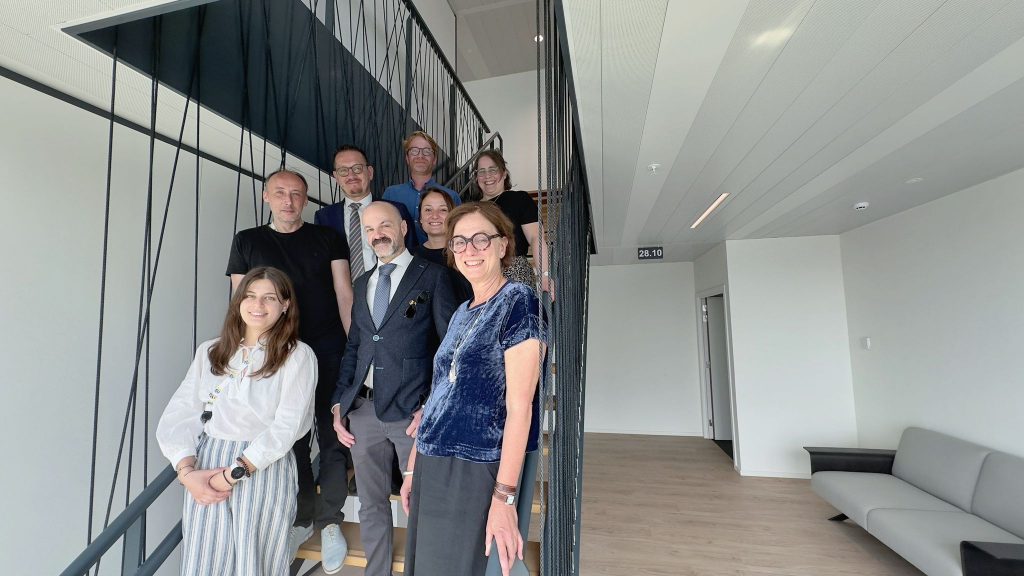The presidency from the inside
From 1 January to 30 June 2024, Belgium held its 13th presidency of the Council of the European Union (EU). The institutional structure of our country means that the regions have many powers at European level. At Brussels level, the Belgian presidency was coordinated by the Brussels-Capital Region delegation to the EU. At the end of this presidency, we invite you to meet this small team of experts!
Who’s who?
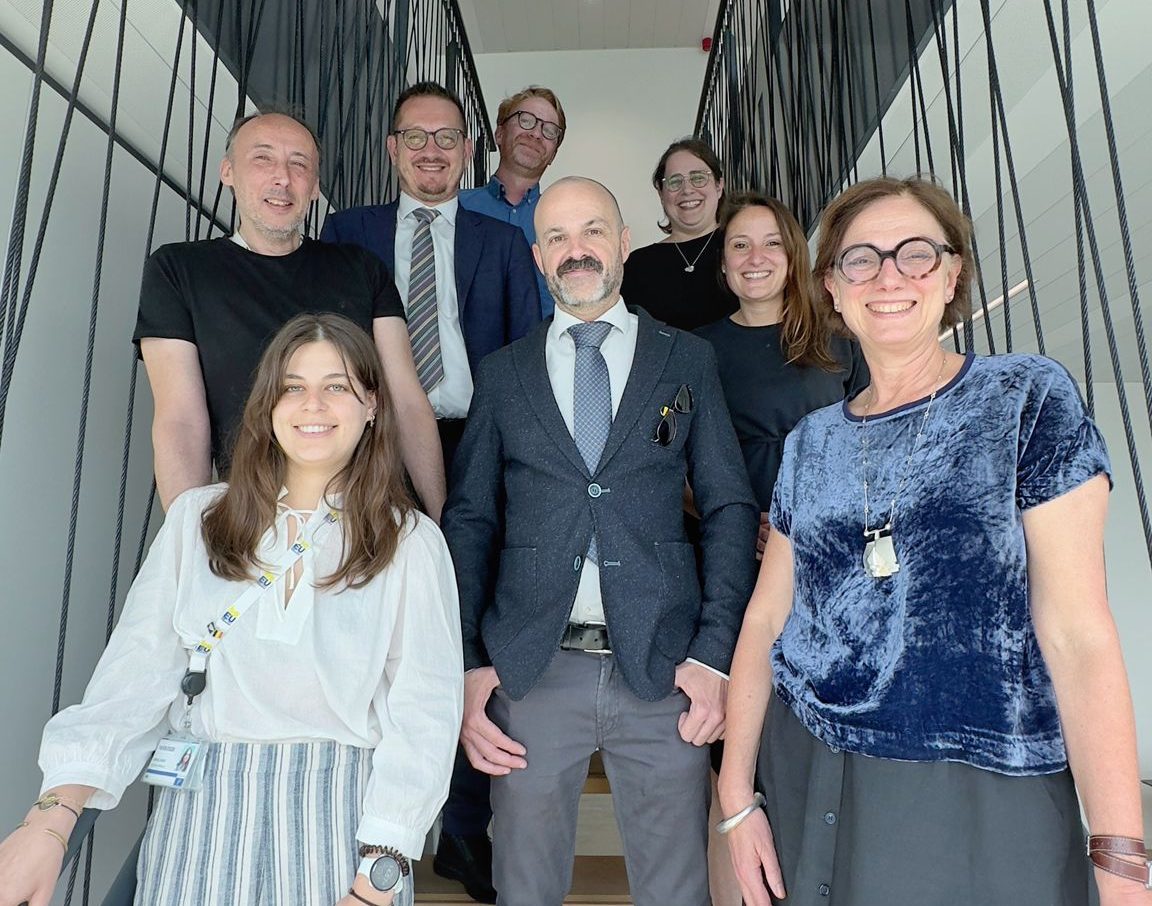
What is the Belgian presidency of the Council of the EU?
Manoëlle : The presidency of the Council is held in turn by each Member State for a period of six months. During this time, the Member State chairs meetings at all levels of the Council, helping to ensure the continuity of the EU’s work.
What is it for?
Nicole: It is an important link in the legislative procedure of the European institutions. The ordinary legislative procedure is known as “co-decision”. First, the European Commission considers that there is a need for legislation and publishes its proposal. Next, the Council, i.e. the Member States, negotiates their position at 27 and the European Parliament carries out the same exercise in parallel. Once the two institutions have reached their positions, they reach a compromise during what are known as trilogues, since the Commission joins in this exercise.
What is at stake?
Manoëlle : As this presidency is taking place at the end of the legislature, Belgium had set itself the goal of finalising a large number of legislative, as many respond to current challenges, notably climate change, Covid-19 and the war in Ukraine. Like the other federated entities, the Brussels Region is playing an active role in areas such as industry, research, employment, cohesion policy, tourism and animal welfare.
How was BI involved in this organisation or, more specifically, what was the role of the CBR delegation to the EU?
Valentin: The Delegation played a negotiating role, but also a coordinating role. It had to bring together the Brussels administrations and agencies involved, in close collaboration with the Brussels government. Without the other administrations and agencies and without the Brussels Government, the delegation would not have been able to move forward, and vice versa. It really is a team effort!
I would add that each presidency represents an opportunity and a unique moment to unite and bring together all the driving forces within the region.
The aim of the delegation and the administrations and agencies, in consultation with the politicians, is to defend the interests of Brussels and to ensure that they are taken into account at Belgian national level. This is a huge weight for a small region like Brussels.
A presidency also gives us the opportunity to highlight good practice in Brussels. Can you give us an example?
Lonne: In June, two colleagues from Brussels Economy and Employment (BEE) presented the Shifting Economy strategy, i.e. the way in which the Brussels-Capital Region makes State aid conditional on social and environmental exemplarity, to the Council’s Competition working group, which many found inspiring.
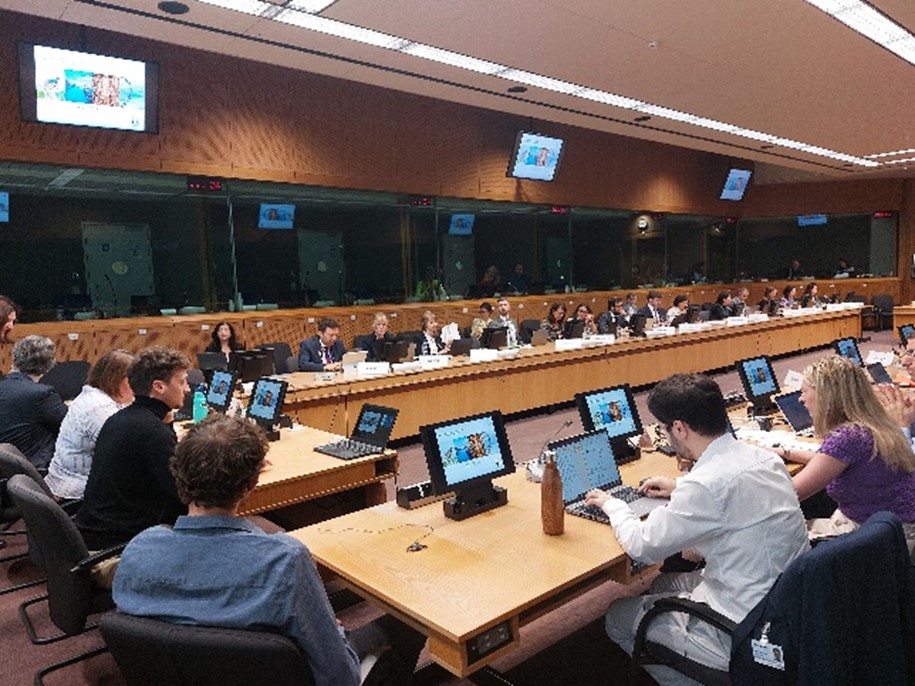
Is there a common thread running through the Brussels part of this presidency?
Valentin: The key word is certainly “urban”.
But how is this urban priority being put into practice?
Valentin: I am in charge of cohesion policy, but I am also responsible for everything to do with the urban dimension, a subject for which we had a turn. Our objective, in close coordination with perspective.brussels, was to re-emphasise the need to put the urban dimension at the top of the European agenda. This led to the organisation in January of a summit entitled “a European urban policy fit for the future”, bringing together elected representatives from nearly 40 European cities. They signed the Brussels Declaration, which reiterates the importance of cities as drivers of European objectives and defends a strong urban policy for the next Commission and programming period. More than 170 cities and city networks have signed the declaration to date. We must continue to invest in it!
Lonne: The urban aspect is cross-cutting and concerns all subjects. I am particularly responsible for tourism. Obviously, when we think tourism, we think beach or ski, but there is also business tourism, in which cities have a key role to play. During the presidency, together with visit.brussels, we organised a conference on the ‘meetings industry’, which highlighted the roles and challenges of this industry.
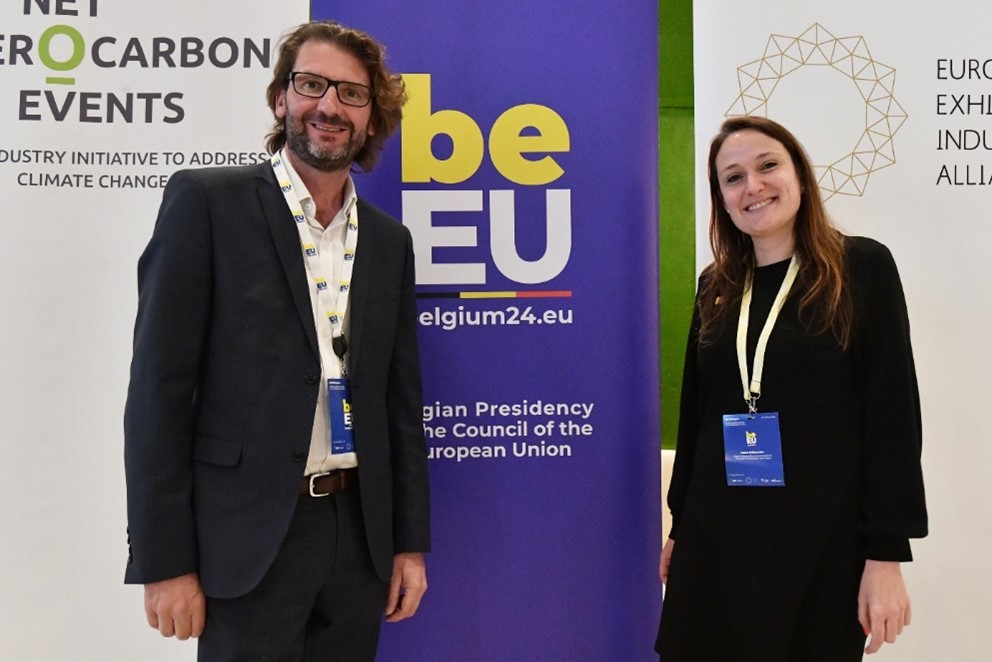
Edoardo: It can also take the form of legislation. I was responsible for the negotiation and technical preparation of the trialogues on the urban wastewater regulation. The environment and energy are highly technical areas that require the services of experts. Without them, we attachés would not be able to work. But conversely, the experts also need the attachés to translate their technical language into more political and diplomatic terms.
In concrete terms, how did the trialogue go?
Edoardo: It was quite sporty! The attaché has to manage the preparations and chair the technical meetings prior to the trialogue. For example, I went on a three-day mission to Strasbourg to negotiate. The timetable was unbelievable because the meetings were held around the schedules of the MEPs.
Afterwards, I assisted the ambassador at the high mass that is the trialogue. It is a bit like a sports match, with teams coming and going, the Commission. This requires negotiating skills. We are informed of the positions of the various member states, but we must not let anything show to try and achieve the scenario we want. It is a bit like the last hand in a poker game!
And what about employment and social policy?
Frederik: The aim of the La Hulpe declaration is to renew a commitment to a stronger social Europe by signing an inter-institutional declaration on the future of the European social rights base. We often forget that cities have an extremely specific context: a remarkably high youth unemployment, an exceedingly high cost of living, particularly housing, and so on. BCR, along with the other two regions, fought hard to ensure that elements such as the activation of the unemployed, the role of public employment services, training and the fight against social exclusion were included, the rapporteur and the ambassador, and we try to haggle to reach an agreement.
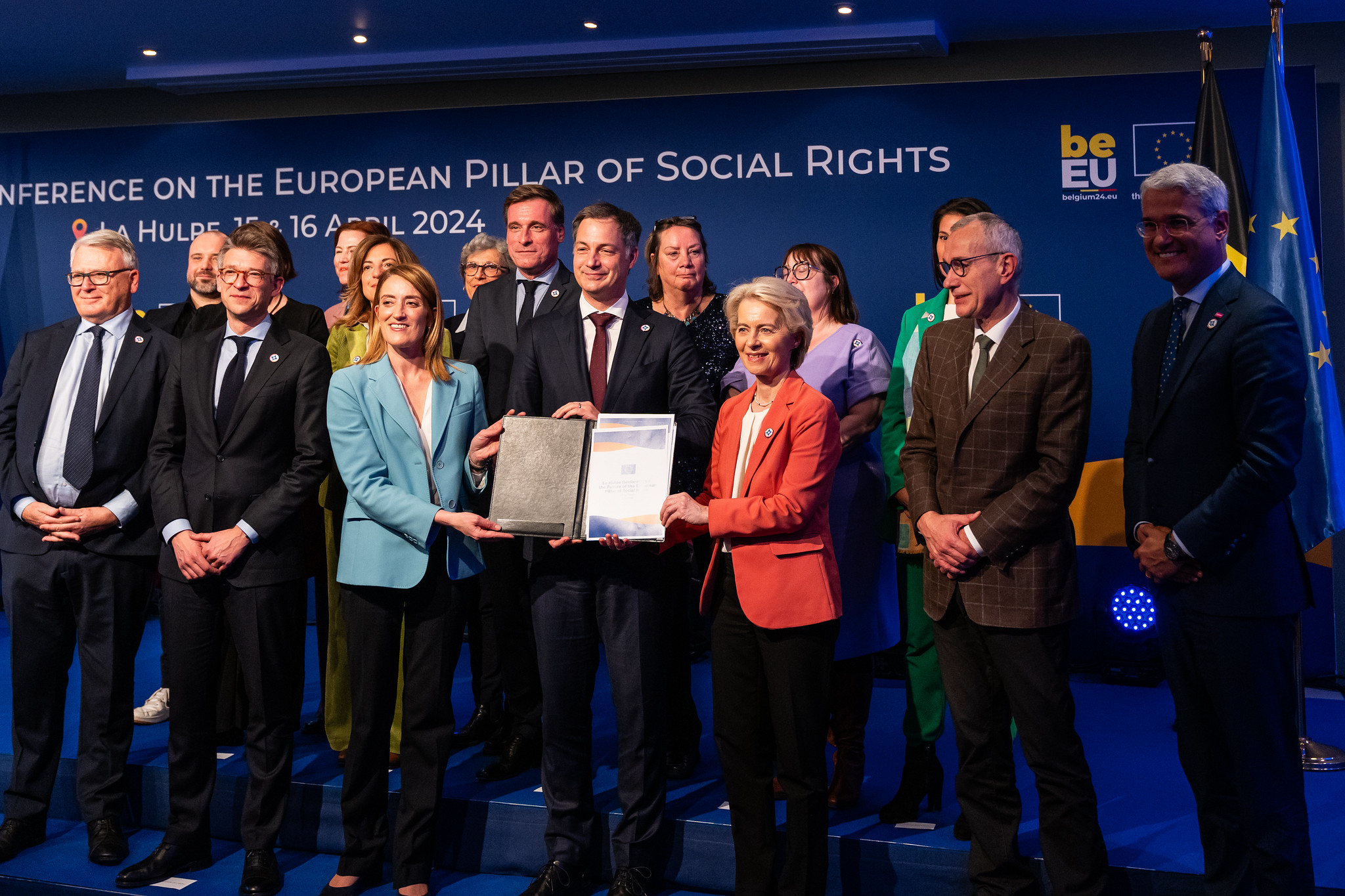
You were responsible for animal welfare. In concrete terms, what did your role consist of in this area?
Nicole: Animal welfare is an exclusively regional competence in Belgium. When I joined the regional delegation to the EU in 2021, preparations for the presidency were already underway. In animal welfare, as in many sectors, we have a rotating system, with each region taking the lead for a year. During the presidency, it was Flanders that took on this role in animal welfare, and I supported my Flemish colleague who chaired the working group. We worked on a legislative proposal on the welfare of dogs and cats and their traceability. I analysed the Commission’s proposal, collected comments from the other 26 Member States, revised the text towards a position that we felt reflected a consensus between the Member States and negotiated with the group or with certain Member States individually.
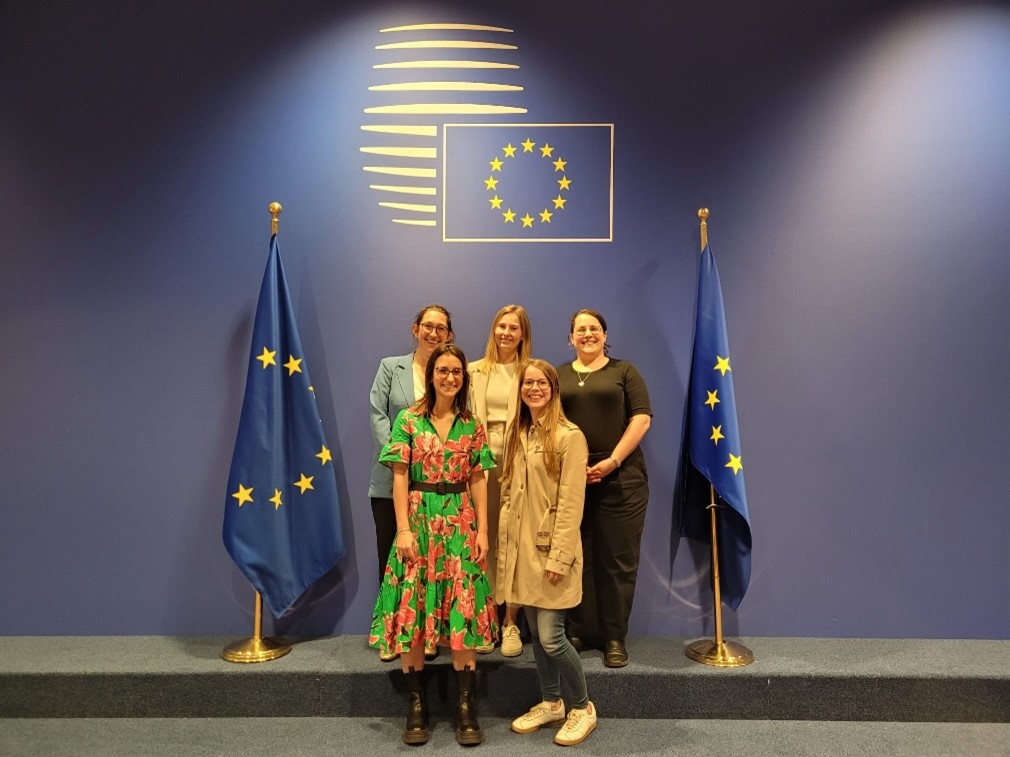
What has your role been?
Lonne: I was one of the two vice-chairs of the industry working group, so I was fully involved in the work on the legislative proposals. We also worked a lot with the European Parliament. I was responsible for the strategic partnerships on raw materials with Australia and Norway. We also made sure that the Council conclusions could serve as a source of inspiration for the new Parliament and Commission, conclusions that we managed to green a little.
What do the strategic partnerships on raw materials actually involve?
Lonne: Europe needs certain raw materials, such as cobalt and lithium, which are essential to produce many electronic devices. However, Europe does not have sufficient quantities of these materials on its soil and is therefore obliged to develop partnerships in this area.
As well as this profoundly serious programme, have there not been some slightly more informal moments during this presidency?
Céline: While the presidency of the Council involves a lot of formal events, there are also informal moments, which allow us to take a breather and get to know our colleagues from the other 26 States in a different setting. One such event is the “attaché trip”, which is organised by each presidency for two or three days in the country holding the presidency. As the Brussels Region was responsible for environment policy, it was I who organised the attaché trip, with the support of other colleagues of course. It was not easy to prepare, with the choice of region to visit, activities, means of transport – nothing was left to chance. We highlighted Greenbizz, a sustainable business incubator located near Tour & Taxis, before heading off to the German-speaking Community with visits to family businesses and the beautiful Fagnes region. Overall, an attaché trip is full of discoveries and leisurely activities, but it is also a way of forging links that will help you negotiate more effectively later on…
Finally, we must not forget the practical organisation, without which these events would not take place?
Rudi: Indeed! Behind the meetings and receptions, there is a huge amount of logistical work, involving a large number of actors, which is ignored by the participants in this type of event.
My role was to coordinate, in consultation with all levels of government, the organisation and security of events organised by the various Brussels institutions. Sorting out every aspect down to the smallest detail meant a lot of meetings and a lot of stress as the big day approached.
Welcoming all the participants (caterers, security guards, interpreters, etc.) and the strict security measures imposed by the presence of ministers, elected representatives and other senior civil servants make the day of the event exhausting. Present from 4 o’clock in the morning for the staff briefing, the coordinator is also the last person to be able to leave the premises.
You will understand that it is not all fun and games, but if I had to do it again, I would not want to miss a second of it. I have already signed up for the next Belgian presidency … in almost 14 years’ time!



